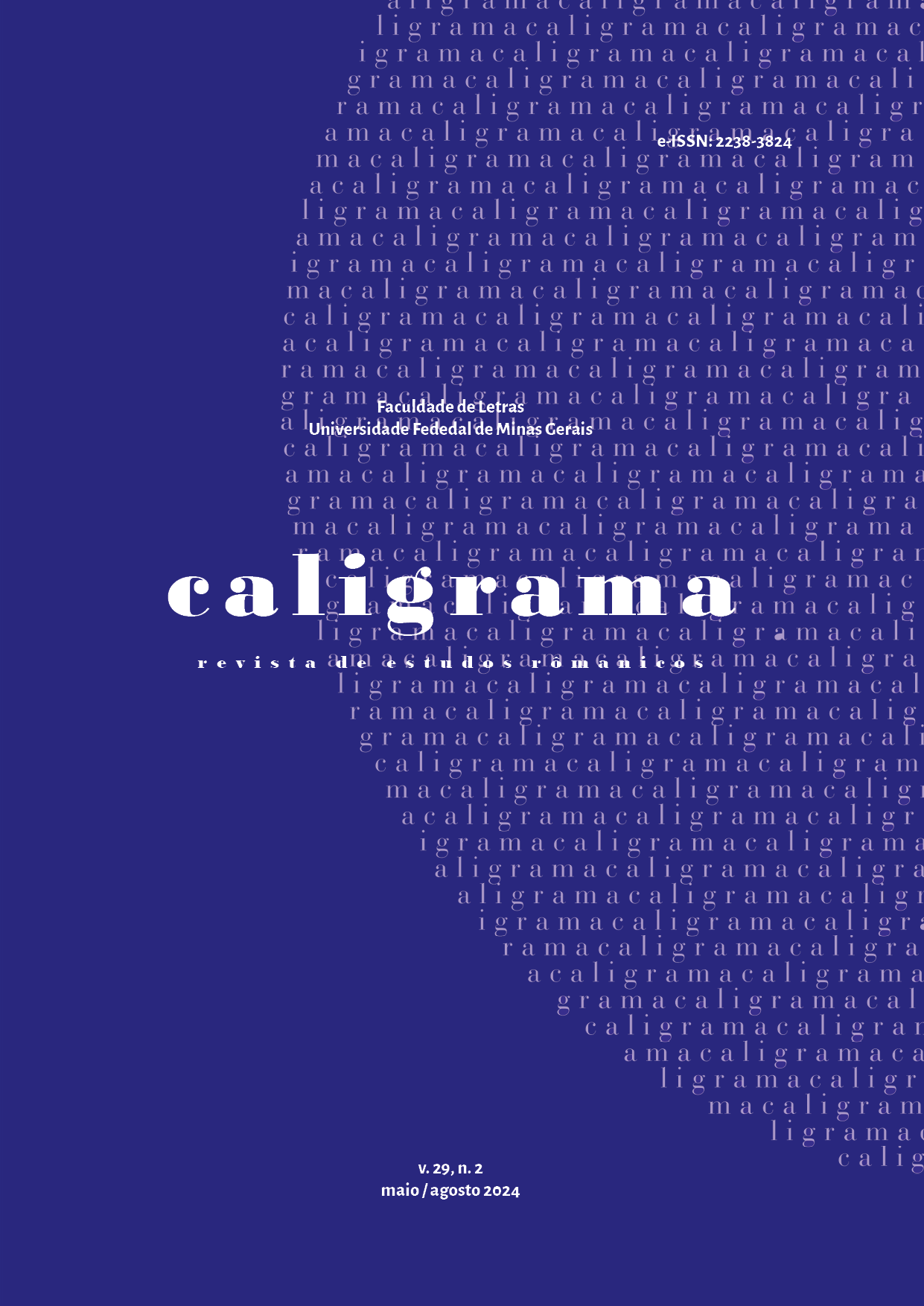The Performance of a Corpus in Translation
Wahdaha chajarat ar-ruman (2010), by Sinan Antoon, from Arabic into Brazilian Portuguese
DOI:
https://doi.org/10.17851/2238-3824.29.2.14-30Keywords:
contemporary Arabic literature, translation studies, Iraqi literature, transnational literatureAbstract
As an exercise of the body-text, this article attempts to partially describe the performance of the translation process of the Iraqi novel Wahdaha chajarat ar-ruman (2010) (The Corpse Washer, 2013, translated by the author), by Sinan Antoon, from Arabic to Brazilian Portuguese. Starting from the context of its production, which dates back to the US military invasion of Iraq in 2003, the narrative echoes the terror that takes hold in the country. After so many years of imprisonment and torture, we are presented, through the voice of a mghassilchi – a Shiite body washer –, with an Iraq shattered by bellicose policies and military colonialism that turns it into a death field. Thus, I work on a description that unfolds from the experience of a foreign reader, translator, and academic of literature – commonly regarded as a corpus of historical, ethnic, as well as anthropological records – that attempts, to some extent, to present it as an artistic body. As an artistic body formed by a craftsman, it requires the translator’s creative ability to bring into the world – and why not give birth to – a body that constitutes itself as a different repetition.
Downloads
References
AL-RAMLI, Muhsin. Hadaíq ar-raís. Beirute: Thaqafa, 2012.
ANTOON, Sinan. Wahdaha chajarat ar-ruman. Freiburg: Al-Kamel, 2010.
BARTHES, Roland. O prazer do texto. São Paulo: Editora Perspectiva, 1999.
BAUDRILLARD, Jean. A transparência do mal: ensaios sobre os fenômenos extremos. São Paulo: Papirus, 1996.
CHAUÍ, Marilena. Convite à filosofia. 7. ed. São Paulo: Ed. Ática, 2000.
DELEUZE, Gilles; GUATTARI, Félix. Como criar para si um Corpo sem Órgãos? Tradução de Aurélio Guerra Neto. In: DELEUZE, Gilles; GUATTARI, Félix. Mil platôs: capitalismo e esquizofrenia 2. 2. ed. São Paulo: Editora 34, 2012. v. 3. p. 11-33.
DERRIDA, Jacques. Uma certa possibilidade impossível de dizer o acontecimento. Revista Cerrados,
[s. l.], v. 21, n. 33, 2012. Disponível em: https://periodicos.unb.br/index.php/cerrados/article/view/26148. Acesso em: 22 jul. 2024.
FLORES, Guilherme Gontijo; GONÇALVES, Rodrigo Tadeu. Algo infiel corpo performance tradução. Desterro [Florianópolis]: Cultura e Barbárie; São Paulo: n-1 edições, 2017.
FUSHA. In: WEHR, Hans. A Dictionary of Modern Written Arabic. New York: Spoken Language Services Inc., 1992.
JUBRAN, Safa Abou-Chahla. É bom ser infiel! É muito bom trair! Blog editora Tabla. Rio de Janeiro, 18 jun. 2020. Disponível em: https://editoratabla.com.br/e-bom-ser-infiel-e-muito-bom-trair/. Acesso em: 2 maio 2022.
JUBRAN, Safa Abou-Chahla. Para uma romanização de termos árabes em textos de língua portuguesa. Tiraz: Revista de Estudos Árabes e das Culturas do Oriente Médio, São Paulo, v. 1, p. 16-29, 2004. Acesso em: 30 jul. 2024. DOI: http://dx.doi.org/10.11606/issn.2594-5955.tiraz.2004.88628.
KOJÉVE, Alexandre. Introdução à leitura de Hegel. Rio de Janeiro: Contraponto: EDUERJ, 2002.
LINS, Daniel. A estética como acontecimento. O corpo sem órgãos. Lumme Editor, 2012.
MBEMBE, Achille. Necropolítica. São Paulo: n-1 edições, 2018.
ROSEN, Nir. Aftermath. Following the Bloodshed of America’s Wars in the Muslim World. New York: Nation Books, 2010.
XIITA. In: DICIONÁRIO Caldas Aulete Digital. [S. l.]: Lexikon Editora Digital, 2024. Disponível em: https://www.aulete.com.br/xi%C3%ADta. Acesso em: 22 jul. 2024.





